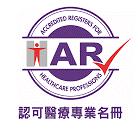Does your child need help?
The Maternal and Child Health Centres (MCHC) of the Department of Health (DH) provide an ‘Integrated Child Health and Development Programme’ for children from birth to the age of 5 to promote health and prevent diseases. Parents can obtain anticipatory guidance on child development. The information and leaflets on ‘Child Development’ published on the website of DH’s Family Health Service allow parents to make preliminary assessment of their children's language development. Parents can infer their children's language development through daily communication and consultation with kindergarten teachers about their children's performance in school.
At the same time, health professionals will conduct surveillance interviews with parents and observe the child’s growth and development at specific ages, so as to achieve timely identification of children with developmental problems. Parents can also proactively arrange for follow-ups with health centres. Furthermore, if pre-school teachers suspect that a child has developmental problems, they could refer the child to a MCHC in the respective districts for preliminary assessment, and depending on the results, the MCHC may refer the child to a specialist of the Hospital Authority for follow-up consultations.
Understand the treatment process
Step 1: Check the service recipients
The Consumer Council (the ‘Council’) has previously conducted a survey on institutions that provided such services, and found that 25 institutions provided treatment services for children with speech disorders, but only about half of them provided treatment services for post-stroke elders suffering from dysphagia. Consumers with elderly family members in need of such services should screen the institutions to rule out those without elderly services.
Step 2: Check the qualifications of therapists
Next, consumers should check if the speech therapist is a ‘Member of Register of Speech Therapists Accredited by Department of Health’ (a member of the Hong Kong Institute of Speech Therapists (HKIST)). HKIST maintains the register of accredited speech therapists in Hong Kong and ensures that its registered members are qualified as practitioners according to its robust assessment criteria and are accredited under DH’s Accredited Registers Scheme for Healthcare Professions. Consumers should also check the ‘Accreditation Mark’ (see below) and the therapists are permitted to use the title ‘Member of Register of Speech Therapists Accredited by Department of Health’ on the business card.

Currently, there are 409 accredited speech therapists registered as members of HKIST. Consumers can log on to https://www.hkist.org.hk/static/HKIST_List_of_Registrants.pdf to search for accredited speech therapists (including therapists in private institutions).
In particular, the Council has initially sent out a questionnaire to 54 institutions that provided speech therapy services, but nearly half of the institutions were reluctant to provide information regarding their services, nor could such information be found on their websites. Furthermore, some therapists might have obtained overseas registration or qualifications. However, not all speech therapists in the institution are qualified. When comparing services, consumers should make additional enquiries regarding qualifications.
Step 3: Compare the scope of services
Assessment tools
Before starting any treatment, therapists will normally carry out assessments at the first consultation, and then determine the subsequent treatment plans. Institutions may use different assessment tools, which can be classified as standardised or non-standardised tools:
Standardised tools | Assessments are administered in a standard way, and the results are norm-referenced to produce more reliable diagnosis. Common tools are:
For further details, please refer to: https://www.dhcas.gov.hk/tc/
|
Non-standardised tools | Rely on professional clinical observations and testing of children’s performance in different linguistic areas to assess their language abilities and determine follow-up evaluations. |
Some institutions only use standardised assessment tools, while others may use a mix of standardised and non-standardised assessment tools, as well as adding additional assessment areas, such as oral-motor skills, speech fluency and voice, and may conduct interviews with parents and caregivers. For elderly people suffering from dysphagia, assessments may include clinical swallowing evaluation, oral-motor examination and evaluation of eating abilities. Consumers should first understand the specific assessment tools, so that they can determine whether the tools are suitable and avoid delaying diagnosis and treatments.
Treatment details
Depending on the assessment results, therapists will develop a series of treatments and trainings. In addition to providing treatments for patients, some institutions will also provide guidance on home trainings for parents and caregivers, or allow parents to attend classes as observers and participate in trainings, in a bid to effectively extend the trainings into patients’ daily life. Consumers should consider whether such arrangements are necessary.
Step 4: Review charges
The service charges of different institutions vary considerably. Taking the first assessment session as an example, prices can range from a few hundred dollars to several thousand dollars. Within the same institution, charges may also vary according to therapists’ qualifications, days using the service (weekdays or weekends), and time required for the assessment, etc. Consumers should carefully assess their actual needs and budgets before choosing the right institution.
Furthermore, since the treatment process generally involves a number of sessions, many institutions offer special packages with lower rates as compared to single session (e.g., 5% off for every 6 sessions, 10% off for every 12 sessions, etc.) However, since the package fee may have to be fully paid in advance, consumers should pay attention to whether the package has an expiry date (e.g., 12 weeks to 1 year), or whether there is a refund if the service is suspended during the treatment period.
Step 5: Check if a doctor's referral is required
Although most institutions do not require a doctor's referral, some services or assessments provided by hospitals (e.g. Fiberoptic Endoscopic Evaluation of Swallowing (FEES) for elders with dysphagia) will require a doctor's referral and clinical swallowing evaluation carried out by a speech therapist, and patients need to be admitted to the hospitals for such assessments. Therefore, consumers should pay heed when selecting services.
Support from the Education Bureau
Apparently, the Education Bureau (EDB) has been maintaining speech therapist posts in aided special schools. Starting from the 2019 school year, the EDB has created school-based speech therapist (SBST) posts in the public sector ordinary schools by phases to allow schools to provide the Enhanced School-based Speech Therapy Service (SBSTS) to students with speech and language impairment (SLI). For public sector ordinary schools that do not have SBST yet, additional subsidies are provided to allow students with such needs to use the service. Parents who suspect that their children studying in public sector ordinary schools are suffering from SLI may ask the teachers to refer their children to a SBST for assessments and follow-up services.
For more information, please refer to the article ‘Huge Discrepancies in Qualifications of Speech Therapists and Service Charges Check Carefully the Assessment Tools and Treatment Methods’ (Chinese version only) in Issue #538 of CHOICE Magazine.







![[Baby Snacks Guide] Who Says Snacks Can’t Be Healthy?](/f/guide_detail/415742/376c212/bb%20snack.jpg)



